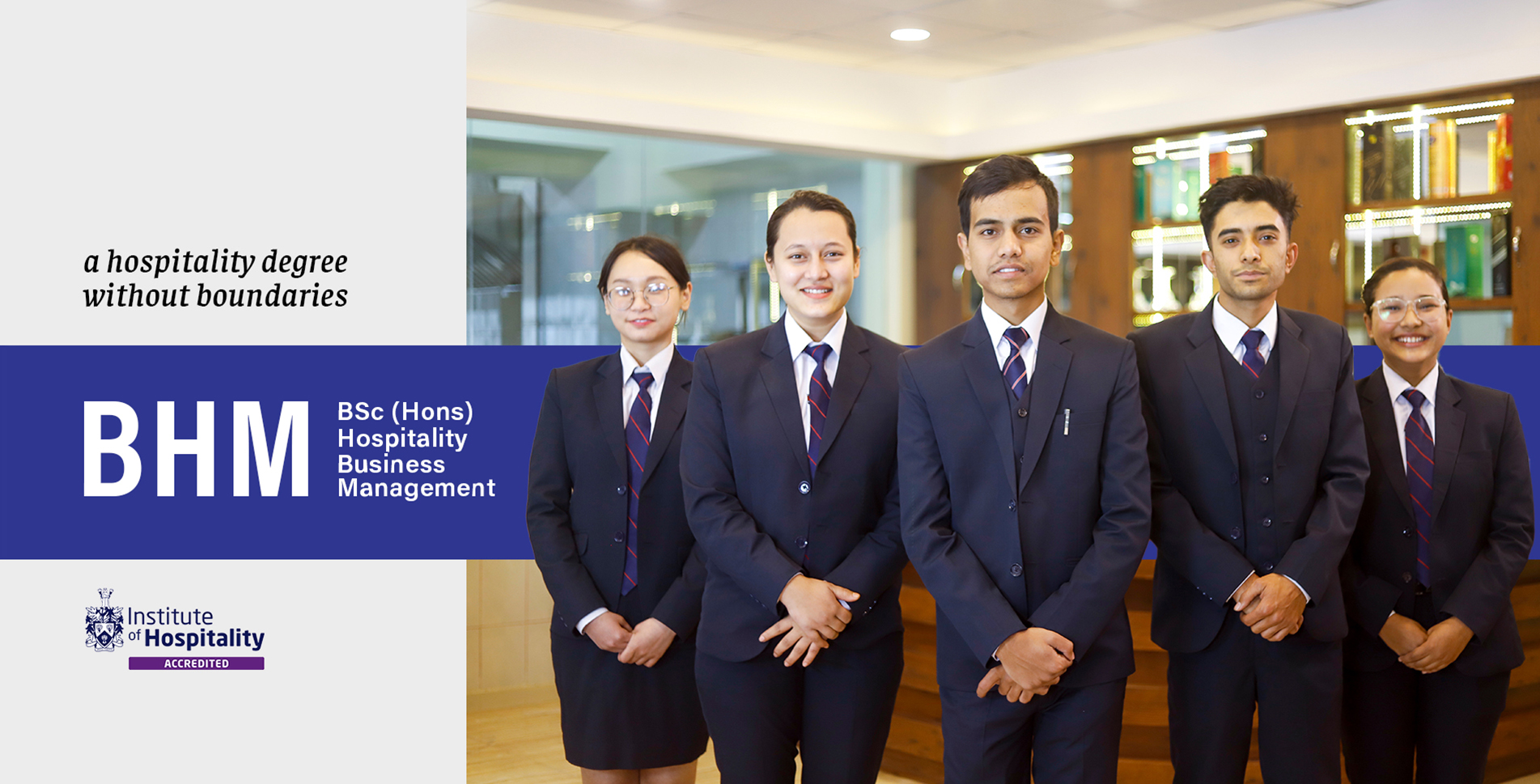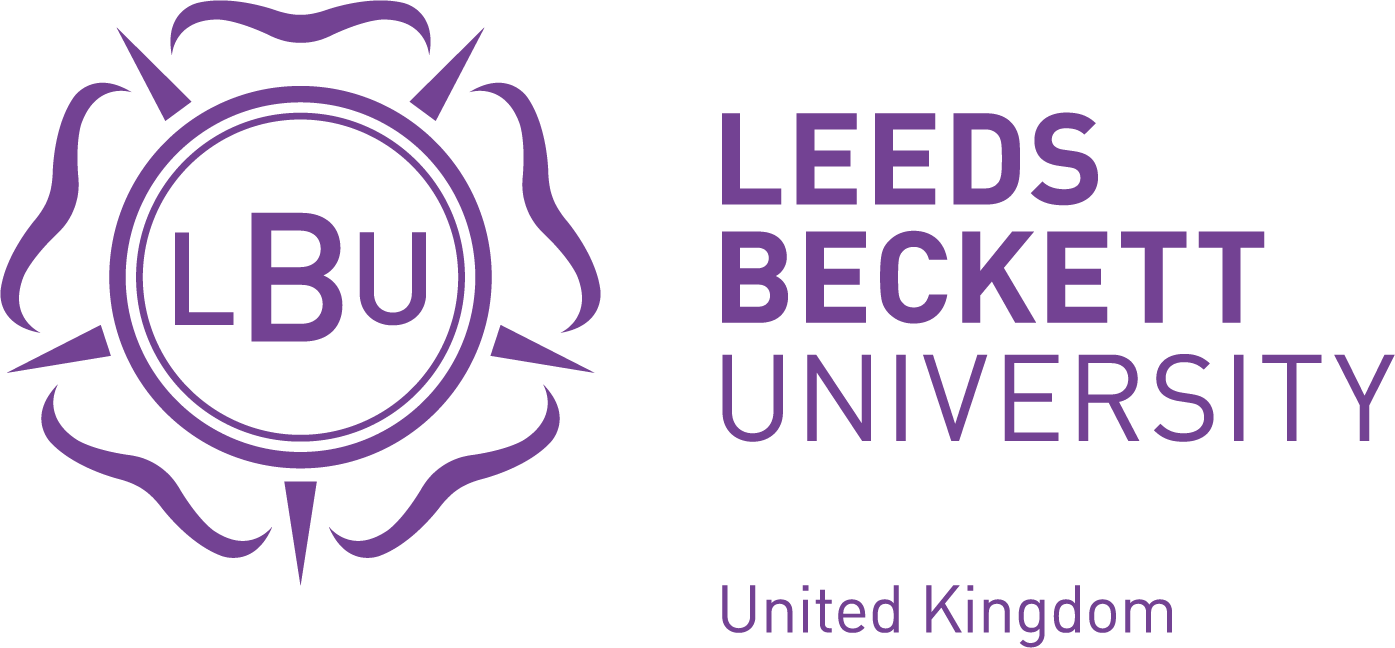Bachelors in Hospitality Management in Nepal

BHM
Whether you’re just starting out in the hospitality industry, are looking for a career change, or just want to learn more, now is as good a time as any to grow what you know. In this guide, we explain what hospitality management is, its scope, why should you study here at The British College etc for you to choose a career in hospitality and pursue your dreams.
What is Hospitality Business Management?
Hospitality Management is the field of management of businesses in the hospitality sector. Professionals in this field create and run many aspects of the guest experience. They also often manage teams that include front desk staff, housekeeping, and sales. Great hospitality managers care about how much their customers enjoy their experience and are looking for new ways to improve every aspect of a visit whenever possible.
People in hospitality management need to be diverse in the way they approach situations since they are dealing with the public and unpredictable people. Sympathy & Empathy for customers’ & employees needs and situations is an essential skill to have when managing a hospitality establishment. So as you can see, each business type has its own unique needs and customer archetypes. Of course, it’s good to have an idea of which one you’d like to specialize in before you start applying for hospitality manager jobs.
BSc (Hons) Hospitality Business Management (BHM) programme is designed to engage, enable, and challenge our students to become creative, entrepreneurial, and critically informed dynamic graduates who can excel in their chosen field of work or progress to further study within hospitality business management. Central to our course is the strong links between theory and practice, with carefully designed authentic assessments, and student‐tutor interaction at the heart of the student experience.
Hospitality Management vs Hotel Management
The hospitality and hotel industry are major sectors of the travel and tourism domain. Courses related to these industries have become increasingly popular and this can be attributed to the fact that the travel and tourism industry contributed 10.4% to the global GDP. However, these hospitality management courses are often confused with hotel management courses. Many usually consider both the same. But are they? Can they be used interchangeably? Turns out it isn’t so.
Though both hotel management and hospitality management deal with the service sector, they are quite different from each other. Hospitality management covers everything from lodging to entertainment to retail. But, as the name implies, hotel management is typically limited to hotels. The biggest difference is scope. However, that's not to say that there aren't still a wide variety of hotel property types, brand styles, and opportunities within the field.
The primary responsibilities, with hotel management, is ensuring guests enjoy a pleasant stay at their establishment. It involves taking care of them from the moment they check-in to the moment they check-out. Every single activity of the guest has to be outstanding to ensure their visit is worth their money. Departments such as the front desk, travel desk, housekeeping, concierge, room service, guest service, etc. are all the responsibilities of a hotel manager. Similar to hotel management, hospitality management also includes taking care of guests, albeit in a different setting. For example, hospitality managers in large organizations are responsible for meeting and greeting foreign delegates and ensuring they have everything they need for a successful visit.
Hotel management is largely an operations-oriented subject. Hotel managers mostly ensure each department in the hotel runs like a well-oiled machine. A hotel management degree, thus, provides intense training on how to manage these departments. Hospitality management is about people management. The aim is to make sure guests are comfortable and satisfied with their experience at the event, venue, hotel, etc. A good hospitality manager is one who takes customer/client experiences to the next level. It’s only when there’s tourism that hotels have a reason to function, isn’t it? Nepal, being one of the premier tourist destinations, enjoys a healthy influx of tourists every year. This allows the hotel industry to thrive and flourish. The hotel industry is, therefore, heavily dependent on the tourism industry.
Due to the very fact that hospitality management is all about people, it is independent of any particular industry. Many IT companies, MNCs, and organizations from a wide variety of industries employ hospitality management professionals to coordinate events, meetings, and guest relations. As you can see, hotel management is restricted to managing the operations of lodging or food and beverage establishment whereas hospitality management includes and extends above and beyond these sectors. This makes hospitality a highly sought-after degree as it offers employment opportunities in a wide array of industries.
Hospitality Business Management in The British College
Nepal has always been a land which treats its guests as its own citizens. As such, hospitality is ingrained in its culture. It is, therefore, a key industry in the subcontinent. There are certain criteria in the field of hospitality which cannot be addressed by the workforce in the modern global world and that is where a student of Hospitality management will be best-made to use. There are several hospitality management courses and degrees available in Nepal. Nepal, being an important tourism hub, is home to a large number of hotels and hotel chains.
The 4-year programme allows students to progress to further study within hospitality business management or alternatively enter straight into the world of work. Hospitality is currently the world's second-largest employment sector, expected to generate nearly seven million jobs per year. BHM graduates will be trained as Specialists in their chosen field of work, whether that be Hospitality and Tourism, Events and Entertainment, or the Luxury Market. With opportunities in hotels, resorts, catering, banks, cruises, aviation, and more - this is a hospitality degree without boundaries.
Central to the course is the strong link between theory and practice. Highly qualified faculty members run small classes to ensure one to one attention in lectures, seminars, and tutorials. TBC also has a brand new state of the art practical arts area, inclusive of a kitchen, restaurant and reception. Furthermore, as a part of the course, students will take part in fieldwork with industry partners and get the chance to obtain some hands-on experience with a 12-month internship with a top international company.
Students studying this course at The British College will be able to transfer to the UK and complete the course at the university in the UK. As per the new UK government rules, students will also qualify for two years of a work visa after completing this course.
How Will You Benefit?
Students will be given a year of full paid Internship in many countries such as Europe, Dubai, China, Singapore. At the end of the course, students will be able to:
- Develop into critically evaluative, resilient, and reflective practitioners who can make robust informed decisions that will flexibly respond to a constantly changing and dynamic globalised hospitality industry.
- Operate as balanced, thoughtful hospitality practitioners who act ethically and responsibly to achieve both their success and that of their organisation.
- Be creative thinkers who are digitally literate and enterprising, and are accomplished and confident in designing and implementing new and innovative products, services and solutions, which will be of benefit to the hospitality industry.
- Think in a cognitively complex way, yet communicate successfully, and be able to influence at all levels within, and outside of, hospitality organisations.
- Use theories and concepts and further integrate this knowledge successfully into an applied and professional setting.
- Initiate and implement change with empathy and attention to detail, whilst taking into account the impact on internal and external stakeholders.
Course Investment and Payment Plans
The average cost of Hospitality Management in The British College is 6 to 8 Lakhs and £2850 Registration/Exam Fee. The fee does not include Nrs. 50,000/- Refundable Security Deposit, Books and Stationery Cost and 15% Additional Education Service Tax as per Government of Nepal.
Though the course provided here is more expensive than others. But you can see the opportunity and advantage that you will be getting. You will get an international degree from one of the prestigious universities in the UK. And more of, a huge opportunity for an internship where you can learn a lot. Getting a UK degree at a lower price.
Key Facts
The BSc (Honours) Hospitality Business Management Degree is awarded by Leeds Beckett University, UK. The course is delivered under Franchise Framework which means all the teaching materials are provided by the awarding university, and the same course is also running at the university - thereby facilitating a comparative benchmark of performance and achievement.
Total Credits: 360
Duration: 4 Years (including Foundation Level)
Intakes: January/ February & August/September
Your Future
Students will have the skills to take advantage of a host of job opportunities at all levels and across a variety of sectors, including graduate programmes with national and international organisations. The student will have the transferable skills needed to enter the service industry, or students can use their knowledge and confidence to start their own business.
- Operations Manager
- Customer Service Manager
- Hotel Manager
- Food and Beverage Manager
Post Grad Study:
Your future career is our business. That's why we offer further study opportunities across all subject areas. Our postgraduate courses are a great way to enhance the skills you have already learned, benefit from our links with industry, and provide you with a CV that will catch the eye of employers.
- Events Management | MSc
- International Tourism and Hospitality Management | MSc
- Responsible Tourism Management | MSc
Hands-on Practical
Food and Beverage Services, Hospitality Service.
Am I Eligible for This Programme?
The entry criteria vary from university to university. But the very basic criteria for an aspirant to study Hospitality Management Course are as follows:
- Applicant should have completed 12 years of formal education
- Applicants from any stream (Humanities, Management and Science) are eligible to join the course
- Applicant should have secured at least 50% in +2
- Applicant should have studied English carrying 100 marks
These are the criteria if you want to enrol in The British College BHM Programme.
Students must have completed 10+2/CBSE or equivalent with 55% and above aggregate score. While in the case of A-Level the student must have a minimum credit of 3.5 credits with 3 full credits to enter in the foundation level. If you want a direct university entry, overall 75% & above with a minimum of 70% in each subject is required.
Why Choose TBC?
The British College offers an excellent Hospitality Management program that covers the essentials of hospitality and related sectors ensuring students are well-equipped to confidently face the challenges of the hospitality industry. The teaching methods used throughout the course are diverse and include lectures, seminars, tutorials, workshops, practicals, and fieldwork. This variety of teaching methods will enhance student achievement, satisfaction, and employability.
A safe learning environment is provided throughout the course. Students will be encouraged to experiment in their learning and ‘take risks’, while extensive support is being given by module leaders, tutors, and personal tutors, to ensure a safe environment for creative freedom - a practice especially encouraged in semester one of level 4.
For example, in the Professional and Academic Success modules - at both Level 4 and 5, the students will be required to choose a research method and will be responsible for justifying this choice. However, module tutors will ensure this choice is relevant and valid to protect the student whilst taking this “risk”. At Level 6, the Hospitality Consultancy Ventures module carries a degree of risk in the choice of project and client. However, tutors will intervene if necessary, although at this level it is expected to be less frequent. This level of protection and intervention will provide a safe and secure learning environment, whilst ensuring that students are participating in challenging and authentic learning tasks.
As students’ progress through the course, they will be encouraged to become increasingly independent learners and thinkers, and the learning environment will become increasingly challenging as they move from level 4 to level 6.
The course is vertically and horizontally integrated and students will build on knowledge, skills, and abilities from level 4, and throughout level 5, to achieve the course learning outcomes at level 6. The learning and teaching activities throughout the course will enable students to succeed at every level and will produce capable level 6 undergraduates who can then become successful hospitality business managers in an increasingly complex, globalised world.
Get the skills you need to start a career in this cutthroat industry without shelling out tons and waiting for years until you get a certification.






